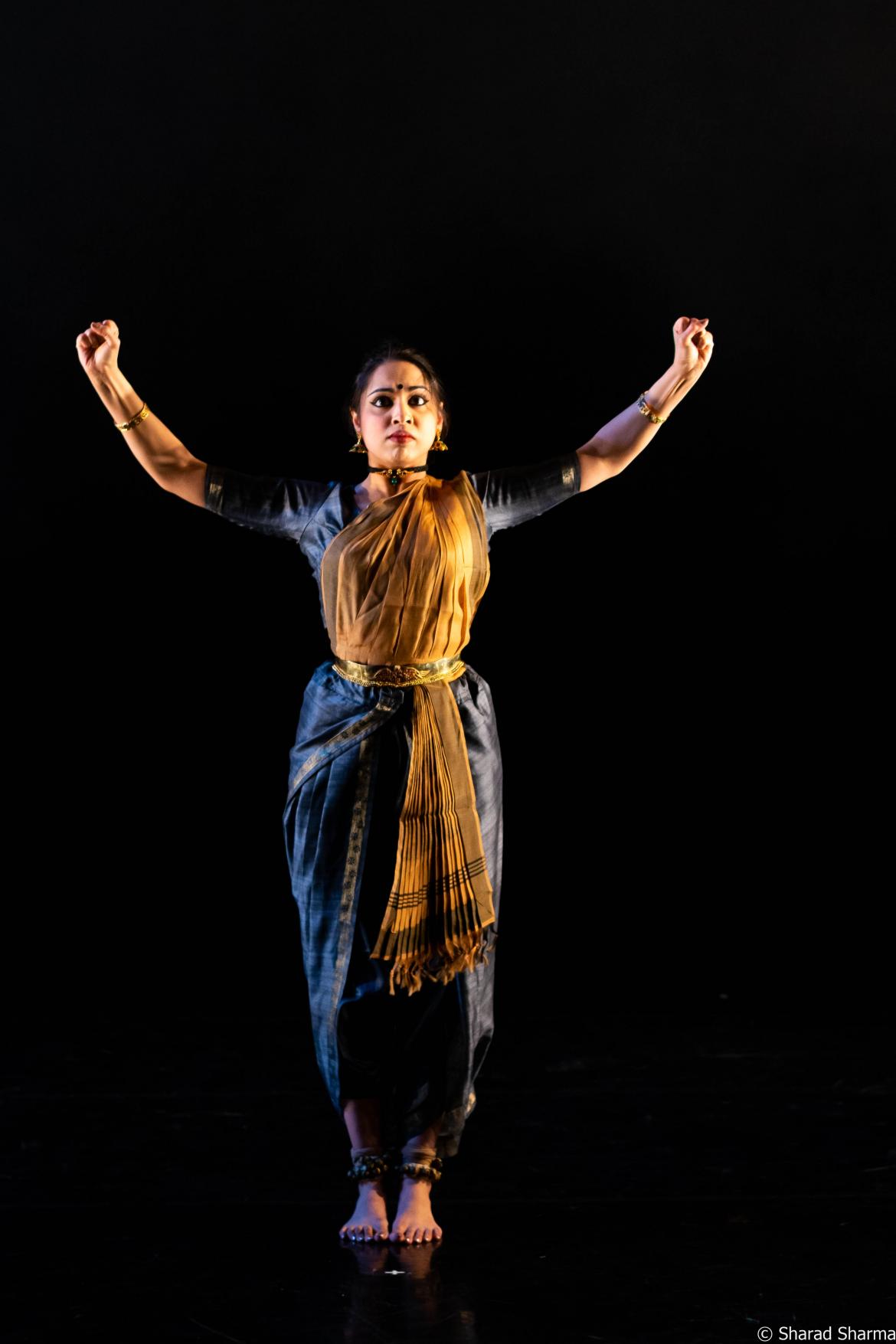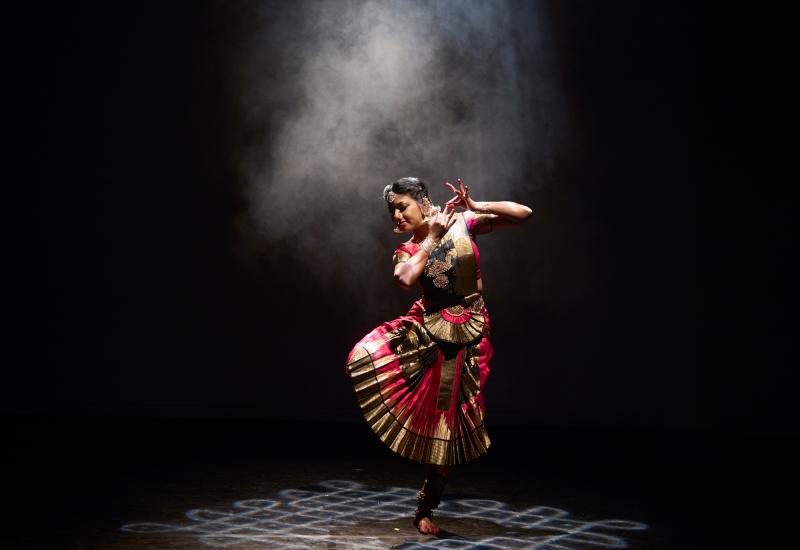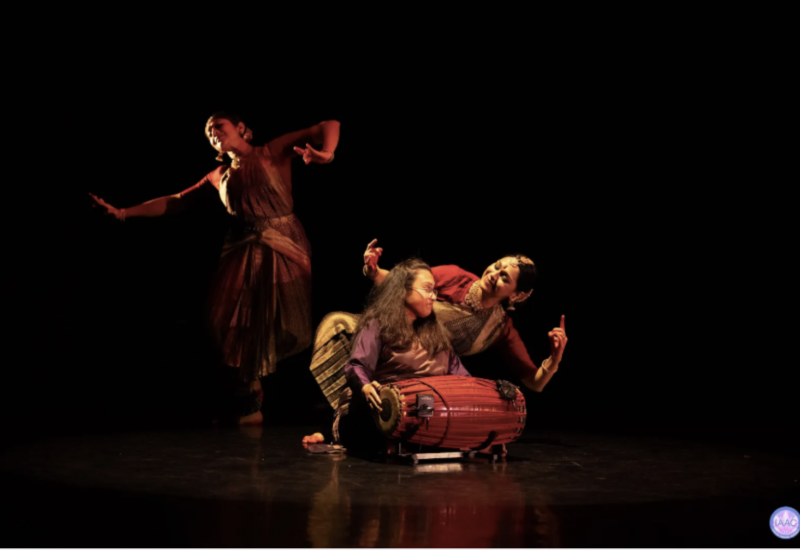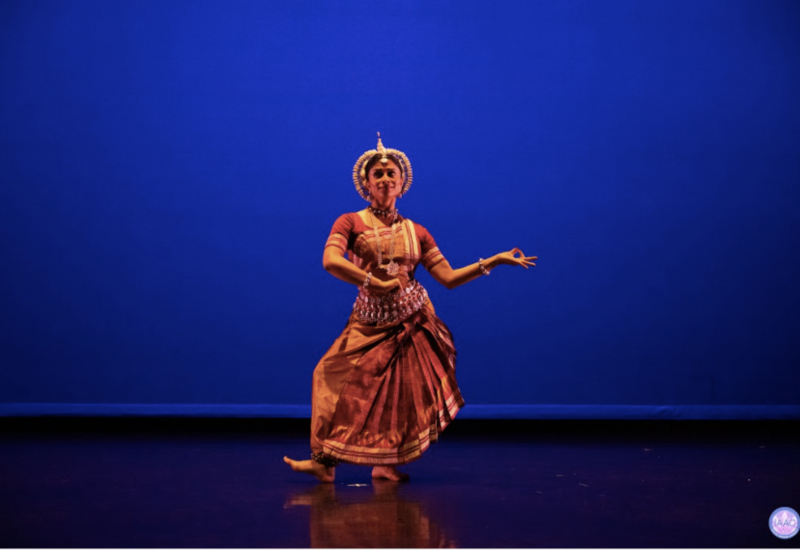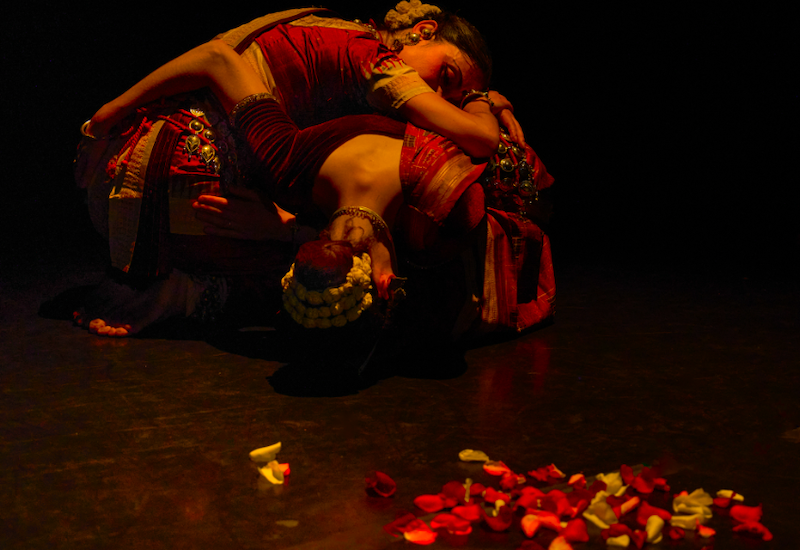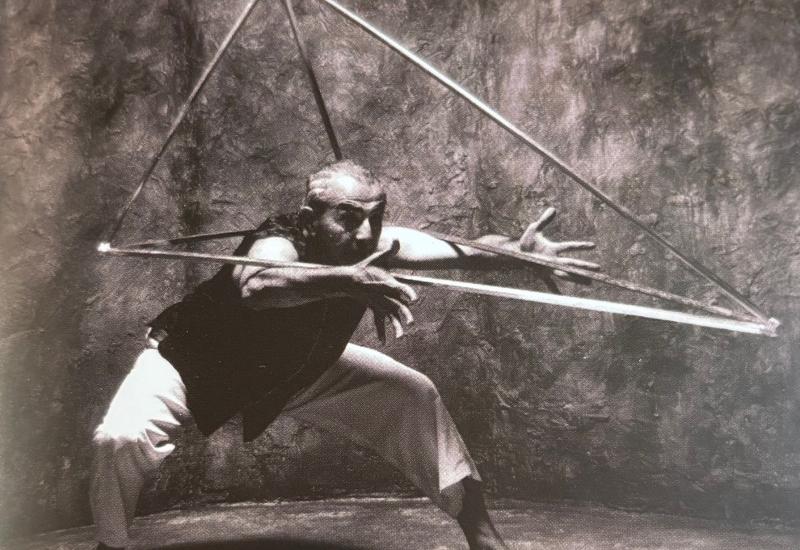Just Enough Madness by Payal Ramchandani
Just Enough Madness
The Place, London
Monday 30 May 2022
Review by Pranita Choudhry
Payal Ramchandani’s performance traverses layers within the immensely complex realm of mental health, a subject that resonates through time and remains an urgent topic today. Ramchandani presents a journey of grief that stems from loss, exploring how our inner and outer worlds interact through individual, social and cultural experiences. The portrayal of dark psychological states are brought strongly to the fore.
The audience is introduced to this thirty-minute piece through the life of the mythological character Devaki, mother of Lord Krishna, who is imprisoned due to a prediction that one day her son would cause the destruction of her brother, King Kamsa. Kamsa orders the slaughter of all her children the moment they are born, and Devaki suffers the loss of several newborns. Ramchandani marks the character's contrasting states of mind through these episodes by first showcasing the blissful period of pregnancy, experiencing kicks in her belly, the syncing of heartbeats, and the joys of new beginnings within, only to lose them shortly after to the five elements of nature. A truly harrowing cycle of repeated loss, the piece transcends beyond being Devaki's story to the story of countless women who have suffered versions of this lived reality.
As the character’s journey continues, the boundaries of reality blur and give way to negative 'inner demons' that shut out all voices of self-belief, leaving her vulnerable and exposed. She swings between ‘what is’ and ‘what could have been’, and confronts unmet dreams as she journeys through the five stages of grief: denial, anger, bargaining, depression, and acceptance. Ramchandani clearly distinguishes each stage of the journey, while acknowledging its non-linearity.
Suffering exorcism and constant social ridicule, Ramchandani’s character descends into madness. In a bleak conclusion, as if her life force has been drained away, Ramchandani embodies a mere puppet who suffers in silence as she dances to the strings of societal norms.
Ramchandani’s hold on the subject is reflected in the ease with which she translates this extremely complex and layered psychological state into dance, clearly the culmination of immense thought, dedication and hard work. She effectively weaves nritta through a piece that doesn't lend itself naturally to pure dance. However, her nuanced abhinaya (expression) is the central tenet of the performance.
An accomplished kuchipudi performer, she applies her strong understanding of vocabulary and technique to go beyond the traditional format and successfully carry the audience through the narrative, including those with no prior experience of Indian classical dance. The performance presented within The Place’s Resolution programming left a powerful impression on many audience members who described it as ‘hard-hitting’ and ‘heart rending’ yet relatable. One viewer commented that 'it was easy to follow her, she completely embodied the character, humanised the performance and enabled me to truly experience her state'.
The drama in the music and intelligent use of narration at regular intervals also helped facilitate this process. However, while this was well-executed overall, the narration at a few points bordered on being too lyrical and distracting from the intensity of Ramchandani’s performance. The use of space on stage too felt a bit restricted at times. However, these more 'practical' aspects are completely overshadowed by Ramchandani’s energy and powerful portrayal: she was truly immersed in her character. The grey and golden costume lends itself perfectly to the context, while maintaining the classical aesthetics of the dance form. Ramchandani displays immense courage in choice of subject, experimental approach, and executes an emotionally authentic performance.
Apart from her power-packed performance, the take-away from the piece is the message concerning lack of understanding around mental health issues, grief and loss, together with the need to support others. The work also calls out societal behaviour and practices of exorcism and ostracism that can diminish one's agency and sense of self; and it challenges us to ask, what is truly important?
Performance, Concept & Choreography: Payal Ramchandani
Music Composition - Bhagyalakshmi Guruvayur, Ramu Raj, Supriya Nagarajan, Duncan Chapman
Percussion - Kiran Gopinath, Prathap Ramachandra
Flute - Rajesh Cherthala, Praveen Prathapan
Voice over - Dr. Agam Bhatnagar, Priya Kapoor, Sharad Sharma, Rachana Narayanakutty, Payal Ramchandani
Lighting Designer - David Bowes
Payal Ramchandani is a Kuchipudi dancer and choreographer based in Newcastle, trained in India with experience in performing both in India and the UK.
Pranita Choudhry is a writer and bharatanatyam dancer with experience in training and performing in India and the UK.

